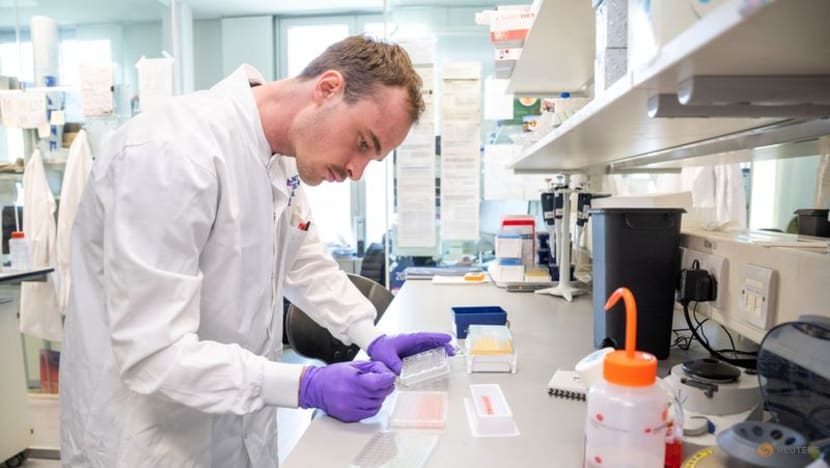High Visa Costs Hindering Recruitment of Scientists in the UK

LONDON: Ed Roberts, a prominent figure in the scientific community, has faced significant challenges in his quest to hire a senior scientist for his cancer research laboratory located in Scotland. The arduous process lasted over a year and has been largely attributed to the exorbitant visa costs associated with working in the UK. These financial barriers have made it particularly difficult to attract international talent, which is crucial for the advancement of scientific research.
The Royal Society, the leading scientific academy in the UK, has drawn attention to this pressing issue. It reported that immigration fees for foreign workers in the UK are astonishingly up to 17 times higher than those in other major countries known for their scientific achievements. This disparity is further exacerbated by an upfront charge mandated for accessing the National Health Service (NHS), adding yet another layer of financial strain for prospective scientists.
This situation poses a significant threat not only to individual research institutions but also to the broader efforts spearheaded by Prime Minister Keir Starmer to stimulate economic growth in the UK. According to Roberts, the difficulty in attracting global talent is detrimental, stating, If we can't convince people to come here, they're going somewhere else. This sentiment underlines the urgency of addressing these visa costs, as they are decelerating the pace of critical research.
The challenges of hiring international talent are further underscored by the experiences of candidates. For instance, Roberts mentioned an immunology researcher from Hong Kong who declined an offer to join his team due to the staggering upfront cost of approximately 15,000 (US$19,800) to relocate to the UK with his family. Although many organizations, including Roberts' lab, are willing to reimburse visa costs for the employee, they often do not extend that courtesy to family members, making relocation financially daunting.
In another case, French researcher Baptiste Brauge successfully navigated the visa process when he accepted a role at Roberts laboratory and was reimbursed for his 4,400 visa fee. Nonetheless, he described the initial requirement to pay such a substantial amount from his personal savings as frightening. This highlights the financial hurdles that foreign scientists must overcome even when they do secure positions.
Moreover, the UK's Immigration Health Surcharge (IHS), which allows overseas workers to access the NHS, recently increased by 66%, now costing 1,035 annually for each adult. This surge in fees has directly impacted the number of applicants for scientific roles, with Roberts noting that such financial barriers significantly reduce interest in positions that would otherwise attract talented individuals. As soon as these kinds of things come in, the number of applicants we have goes down, he explained. It just makes it hard to convince them that this is an attractive place to be.
In response to these challenges, Starmer's government has acknowledged the pressing issue and has commissioned a comprehensive review of labour shortages across various sectors, including IT and engineering. However, officials have indicated that comparing visa costs across different countries is complex and requires careful analysis. A policy paper addressing these issues is expected to be released soon, outlining a strategy to restore order to what has been described as a broken immigration system. The government aims to link immigration policies, workforce skills, and visa regulations to bolster the domestic workforce, reduce reliance on international talent, and ultimately drive economic growth.

















